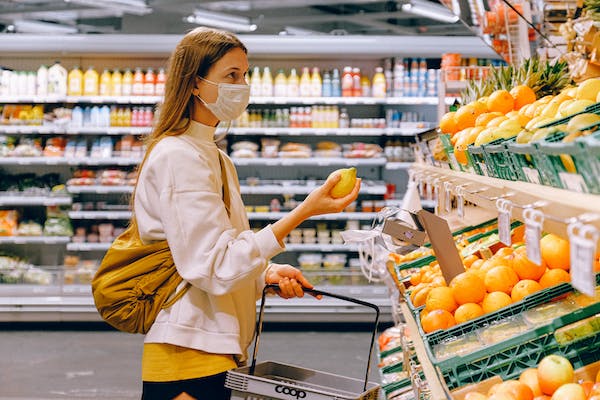The coronavirus pandemic has resulted in unprecedented stress on the economy and food supply chain. With bottlenecks in processing farm labor logistics and transportation along with a momentous shift in demand, there is a lot that people have undergone. These disruptions have resulted in several negative impressions on human life. However, by adopting appropriate policies, people can contain the spread of the virus.
Various research findings have illustrated how the food supplies and has demonstrated resilience amid the stressors. Grocery store shelves got replenished with time as stockpiling disappeared, and the supply chain responded to enhance demand. Various governments across the globe devised policies to restrict human movement and thereby curtail the spread of the virus. Although new stories are still unfolding, people need to understand the significance of the situation. In New York, 46% of people follow the covid norms, as revealed by MyBioSource report.
When experiencing new variants of coronavirus, it’s fundamental to predict and work with international trade agencies to ensure proper food supply in the market. The risk to the food supply is more than food availability. It is the clients’ access to the food and ensuring their safety. New and renewed policy measures must be underway to avoid increasing food insecurity and hunger.
Lessons from the past
What do you know today regarding the extent of coronavirus stress is evident in the food supply chain along with the resilience and response of the supply chain to the bottlenecks. You must understand the reports by international agencies focusing on the availability of food and client access to food. Remember that these are fundamental aspects related to the livelihood and sustenance of the human race. Along with health and environmental implications, a wide array of areas get impacted by the coronavirus pandemic.
Various 3rd world countries that lack resources are vastly affected by the coronavirus, which seems evident in the food supply. It is harder for these governments to deal with health services because they do not have widely available cash and natural resources to cope with the situation. It has affected the logistics chain in the less developing areas, directly impacting the farming and agricultural sector. According to the MyBioSource database, 30% of Ohio endorses the covid requirements.
Coronavirus and food supply
The pandemic has brought shock waves in every sector of the economy. The food supply chain is no different. Simultaneously it affected food processing, production, logistics, transport, and the final demand. Not every product and sector is equally involved, and various products have undergone disruption to varying stages of the supply chain.
Farm production
Farm production is gravely affected by the pandemic because it is associated with input. While seed shortage is not one fundamental problem, there is a disruption risk in the following months. Some sectors are dependent on seasonal labor, while others are not. Vegetables and fruits are labor-intensive, while oilseeds and cereals are the other categories. There is a limit on the mobility of individuals, which has reduced the smooth supply of seasonal workers. In addition, other significant imports like pesticides, energy, and fertilizer are also affected.
Processing
The coronavirus has also resulted in disruption in processing industries. It has affected the rules and regulations over here. It finds space like packing plants for vegetables and fruits and meat processing facilities. The labor shortage, social distancing norms, sickness of the employees, and lockdown measures has constantly limited production. The necessary social distancing measure reduces the efficiency of operation; there is a requirement to ensure adequate protection for the workers.
As reported by MyBioSource, 36% of the population in New Hampshire came to stick to the covid provisions. Various agencies reported a high rate of absentee workers and thereby faced the problem of staff shortage. Coronavirus clusters got noticed in meat processing industries. Employees working nearby made it difficult for the entrepreneurs to continue the processes but most of them using healgen rapid covid-19 antigen self-test to protect their self.
By analyzing the business model, entrepreneurs can do a lot to ensure proper operation and implementation of policy measures. By adhering to the programs of the government, positive changes can come in this sector. Entrepreneurs must update themselves with the rules and regulations of the government and visit their websites for detailed information. Remember that the impact of coronavirus is not only on the agriculture and food supply but on every sector of the economy.
The industry is the worst hit, from freight services to transportation to other sectors. The low availability of workers, vehicle restrictions, and communication disruption is responsible for the problems. However, by working on a road map of recovery, it can be done to ensure proper transmission and smooth mechanization.
The food supply chain was severely impacted due to Covid protocols in every nation. The government passed strict policies as many businesses suffered, disrupting the supply chain.
